
 ==================================================
==================================================Kosovarism and multi-ethnicity
Albin KurtiWhere is Kosovo going?
Albin KurtiWhere is Kosovo going?
Will it become sovereign?
Will the people of Kosovo become a nation?
If yes, then will the Kosovar nation be a political nation according to the French model? Or perhaps an ethnic nation according to the German model. Will ethnicity as belonging and origin prevail, or demos, as participation in the institutional process of the political system?
To understand where Kosovo is being taken, it is necessary to understand the Ahtisaari Plan. This plan is mentioned eight times in the Declaration of Independence, while the word independence is mentioned just three times, including the title of the Declaration.
To understand where Kosovo is being taken, it is necessary to understand the Ahtisaari Plan. This plan is mentioned eight times in the Declaration of Independence, while the word independence is mentioned just three times, including the title of the Declaration.
This Plan is within the Constitution of Kosovo whose Clause 143 notes that the Ahtisaari Plan is higher than the Constitution. So, what do the contents of this Plan tell us about the above question?Clause 1.1 of this Plan, at the very beginning, states that Kosovo shall be a multi-ethnic society. However, in the core of multi-ethnicity is ethnicity. Many different ethnicities living side by side make multi-ethnicity. This is how Ahtisaari conceived it. Because he did not aspire to integrate communities.
His starting point is ethnicity, whilst his aspiration is the coexistence of these communities beside each other (and not integrated together). Therefore, decentralization, cultural heritage, representation, participation and decision making in political institutions is completely built on an ethnic basis.
The Ahtisaari Plan does not make Kosovo Kosovar, but it makes it Albanian – Serb; it does not make the people of Kosovo into the Kosovar nation, but it divides them into Albanian and Serb national communities (and formally also four others).The constitutive unit of the Ahtisaari Plan is not the Kosovar or the citizen. The constitutive unit is the national community. With the Ahtisaari Plan, Kosovo will not become a nation-state while its people will not become an ethnic-nation or a citizens-nation. Kosovo will become an Albanian-Serb country, where Albanians and Serbs live divided territorially from each other. Eventually the Albanian and Serb politicians will be together in the systems institutions, but not ordinary Albanians or Serbs.
(In fact, this is the international answer to ethnic cleansing because the so-called ethnic difference is seen as the cause of ethnic cleansing and not the hegemony of Milosevic's Serbia. This certainly has suited Serbia which after the end of the war was interested to territorialize the presence of Serbs in Kosovo as the demographic minority that they are).
Naturally, this approach perpetuates international rule in Kosovo, which is interpreted as necessary precisely in order to unite Albanians and Serbs, since their uniting is believed to be a new war.
The Albanian-Serb dichotomy in the state of Kosovo keeps this state and its sovereignty always in the hands of internationals.
The symptom of this is the fact that the word, 'international' is the word most used by the Ahtisaari Plan – altogether 126 times. The word 'Serb' is used 37 times whereas 'Albanian' twice: one time in Clause 1.6 when it discusses the Albanian language as one of the two official languages, and the other in a footnote in Clause 2.1 of Annex 7 which says 'non-Albanian communities.'However the project of Kosovarism is evident in Kosovo.
Are we dealing with a contradiction in this explanation?
Who is the target of the project and why does it exist if the Ahtisaari Plan doesn't make Kosovo Kosovar but Albanian-Serb? The multi-ethnicity which the Ahtisaari Plan intends is very difficult to justify because in Kosovo there are about 92% Albanians and about 5% Serbs.
In order to make multi-ethnicity more justifiable and sustainable, the Serb factor is being strengthened while the Albanian factor is being weakened.
The Serb factor is being strengthened by letting Serbia inside Ko sovo, whilst the Albanian factor is weakened by throwing Albania outside Kosovo. Kosovarism is a political project which aims at distancing Albanians of Kosovo, as much as possible, from their Albanian identity and from Albania. Kosovarism is not a project being developed against Serbia, but against Albania. Kosovar nation building means de-nationalizing (only) Albanians whilst there is no state-building (in the strong meaning of the word) because the state remains in the hands of the internationals.
On the other side of the same phenomenon, it is not accidental that there has been no registration of the population for nine years since the war. Their goal is to increase the number of Serbs including Serb refugees in Serbia that are or are not from Kosovo, but also to reduce the number of Albanians by not including the diaspora and even making it possible for them to declare themselves as Kosovar. This will result in a similar situation as Macedonia where for example some members of one family declare themselves Macedonian, whereas some others declare themselves Bulgarian.Multi-ethnicity is in the function of Kosovarism or the imagined Kosovar nation (created by Albanians of Kosovo), but the opposite: Kosovarism is in the function of multi-ethnicity (the Albanian-Serb division of Kosovo). The Ahtisaari Plan (as the legal infrastructure and normative codification of multi-ethnicity) rests above the constitution of Kosovo (as the platform of the future imagined Kosovar nation) inside which it resides. Therefore, multi-ethnicity is above Kosovarism and is greater than it. Kosovarism is a way in which multi-ethnicity intends to weaken the dominant ethnicity for the sake of its own solidity. Multi-ethnicity is a concept and project that comes from above, whereas Kosovarism is just one of its branches. All is being done for the sake of a mechanical concept that exists in the highest offices and instances of politics and not for the sake of the people who live below. Hashim Thaçi and his ministers are like the agents of the film The Matrix. They are Kosovars, they are the machines that want to put their hands inside the bodies of people and towards their hearts in order to transform them into machines. While 'Kosovo' truly is the working title of the film 'Bosnia reloaded', another time . . Albin Kurti leads Vetëvendosje (Self-determination) Movement, which opposes international administration of Kosovo.
********
Nella foto piccola Albin Kurti,leader del Movimento “Vetëvendosje” (Autodeterminazione) che si oppone all’amministrazione
internazionale della Kosova.
*************
CLICCA PER LA TRADUZIONE: Kosovarismo e multi-etnicita'
^^^^^^^^^^^^^^
E' condivisibile l'analisi di Albin Kurti,che rivendica alla Kosova la formazione di uno Stato nazionale kosovaro,e non di uno stato serbo-albanese,una sorta di grande GHETTO dove serbi e kosovari "convivono" separati,chiusi nel proprio spazio assegnatogli. Credo,che di fatto,una situazione del genere farebbe comodo all'Albania,che continuerebbe a tenere i kossovari come "albanesi" e non come popolo a se.
E,in questo disegno,si spiega il massiccio arrivo di serbi nella zona "serba" della Repubblica Kosovara.
Praticamente,l'amministrazione internazionale,con il tacito consenso di Tirana e Belgrado(COME MAI NON SI MANIFESTA PER "IL KOSOVO E' SERBO!"?)vuole smembrare il popolo kosovaro,attraverso la formazione "a spicchio" di uno stato multi-etnico,di una "multi-etnicità" che,da queste parti, non esiste.La Kosova non è la Bosnia!
Orazio Vasta





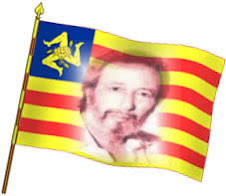














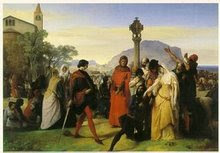
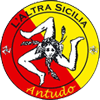
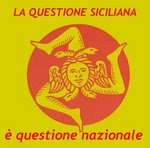

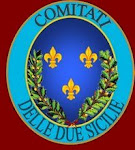


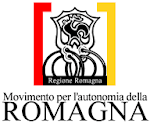












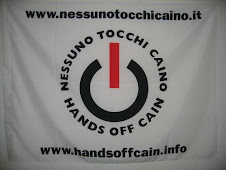

Nessun commento:
Posta un commento